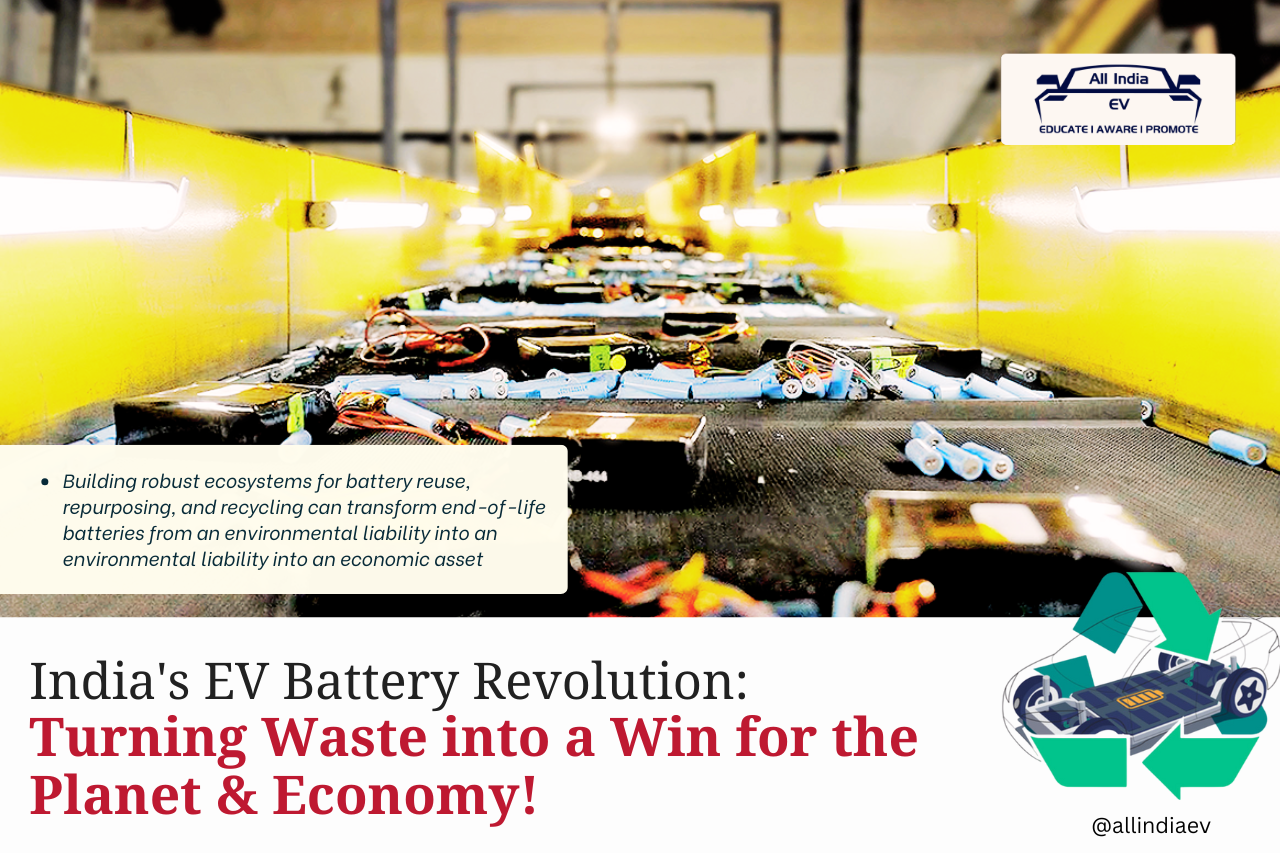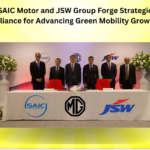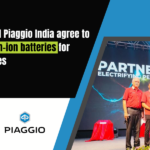
Circular EV Economy: Building Robust Systems to Reuse, Repurpose & Recycle Batteries, Turning End-of-Life Waste into Valuable Economic Assets
EV reports that as India accelerates its journey towards electric mobility, a parallel challenge is fast emerging—what happens when EV batteries reach the end of their lifecycle?
With nearly 2 million EVs sold in 2024 and the market projected to touch $113.99 billion by 2029, India is firmly on track to becoming a global EV leader. But the heart of every EV—the battery—brings with it a critical environmental responsibility that the nation can no longer afford to overlook.
Battery Waste: The Next Frontier in India’s EV Story
The EV battery market in India, valued at $16.77 billion in 2023, is expected to grow to $27.70 billion by 2028, signalling massive demand. But this growth also implies a surge in battery waste—an issue that, if left unchecked, could undercut the very sustainability EVs promise.
EV batteries are typically backed by 8–10-year warranties. Post that period, when battery performance dips below 70–80% of its original capacity, it becomes unfit for vehicular use—but that doesn’t mean its utility ends.
Second Life Before Final Rest
Many EV batteries can be repurposed for secondary applications such as solar energy storage, rural electrification, grid balancing, or telecom backups. However, in the absence of a structured battery recycling and repurposing ecosystem, these batteries risk ending up in landfills—leaking hazardous materials like lithium, cobalt, and nickel into the environment.
According to government data, over 2,750 metric tonnes of lithium-ion EV battery waste have already been collected in the last three years. The first major wave of EV battery decommissioning is expected between 2026 and 2030.
India’s Response: Regulations and EPR Mandates
India introduced the Battery Waste Management Rules 2022, making Extended Producer Responsibility (EPR) mandatory for OEMs and battery producers. This requires manufacturers to collect, repurpose, and recycle used batteries, paving the way for a circular economy model.
Indian firms such as Attero, Lohum, and Metastable Materials are leading the charge with advanced recycling technologies that can recover up to 95% of precious metals from used batteries. These materials are reintroduced into manufacturing, reducing both imports and environmental impact.
OEMs Step Up with Battery Take-Back Programs
Top automotive players including Tata Motors, Mahindra Electric, Ola Electric, Hyundai, and MG Motor are now partnering with recyclers to set up battery take-back schemes and reverse logistics infrastructure.
OEMs are also:
- Tracking batteries via integrated management systems for lifecycle traceability
- Repurposing batteries for non-vehicular applications
- Designing products with recyclability and circularity in mind
Despite these strides, India EV notes that India still needs a massive scale-up in state-level recycling capacity and policy enforcement mechanisms to meet the challenge ahead.
Building a Truly Circular EV Economy
The road to sustainability doesn’t end when an EV hits the road—it continues long after the vehicle retires. India has a critical opportunity to lead in circular battery innovation by:
- Standardising recycling protocols
- Incentivising green battery start-ups
- Educating the EV workforce
- Encouraging investment in battery reuse and repurposing
If done right, end-of-life EV batteries can be transformed from environmental liabilities into economic assets, helping India build a truly circular and sustainable EV ecosystem.At India EV, we believe that the future of mobility must be green—from the first charge to the final discharge. As the nation powers ahead on the EV transition, managing battery waste responsibly is no longer an option—it’s a necessity.










